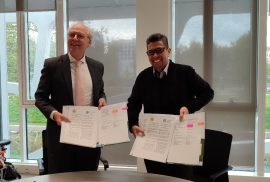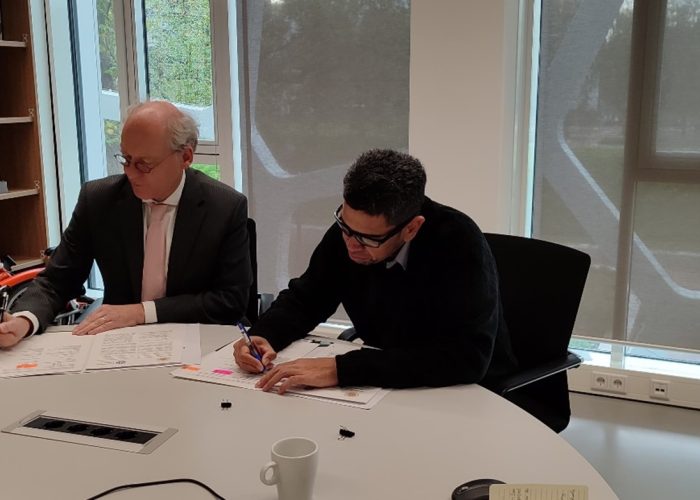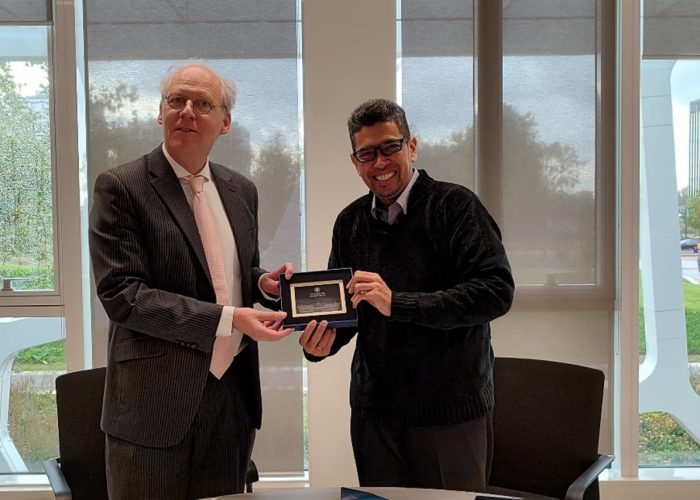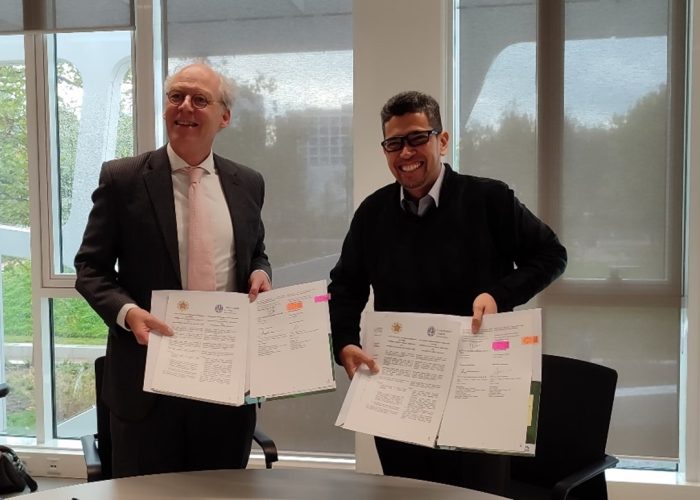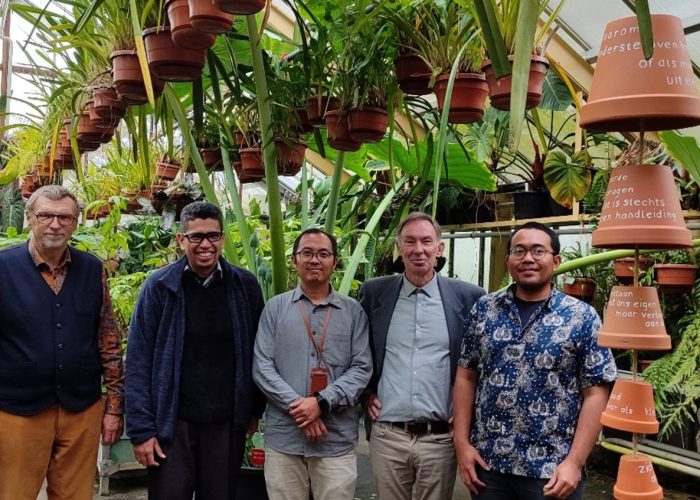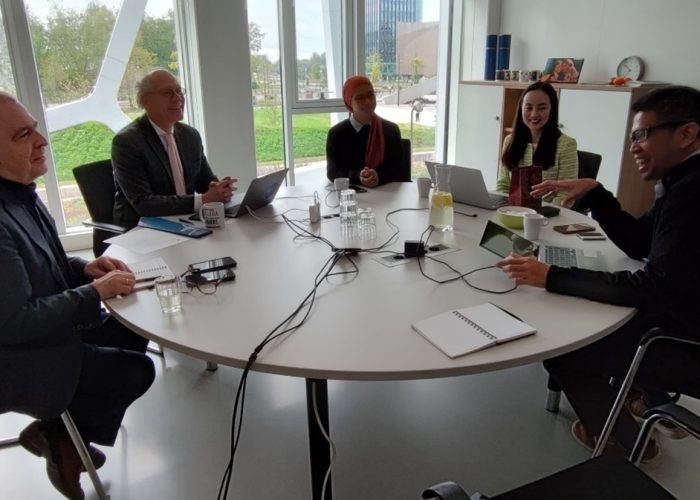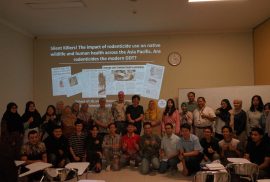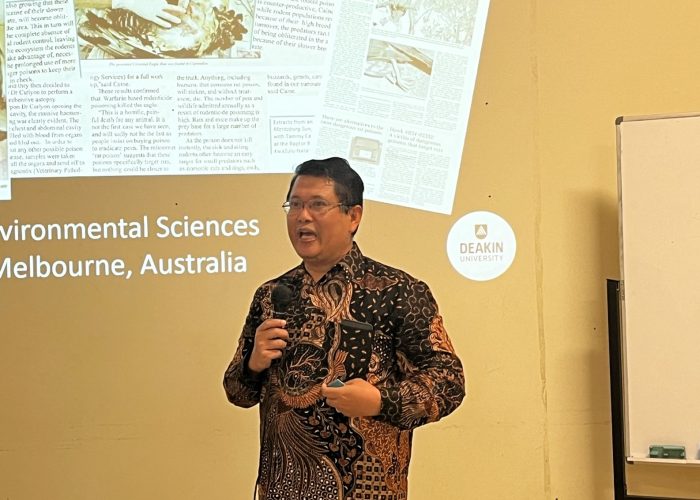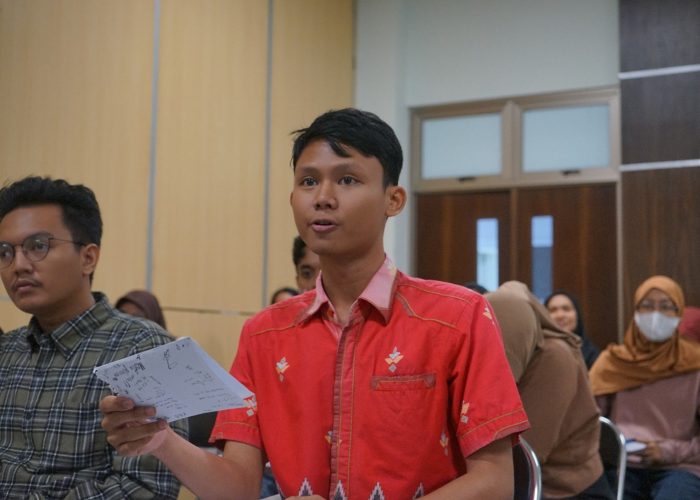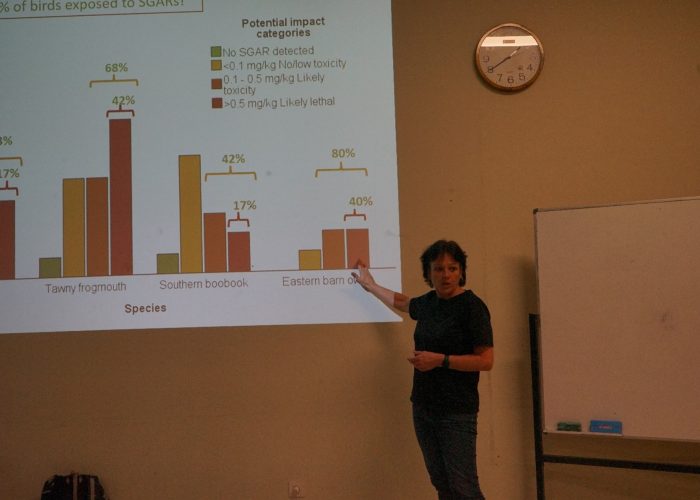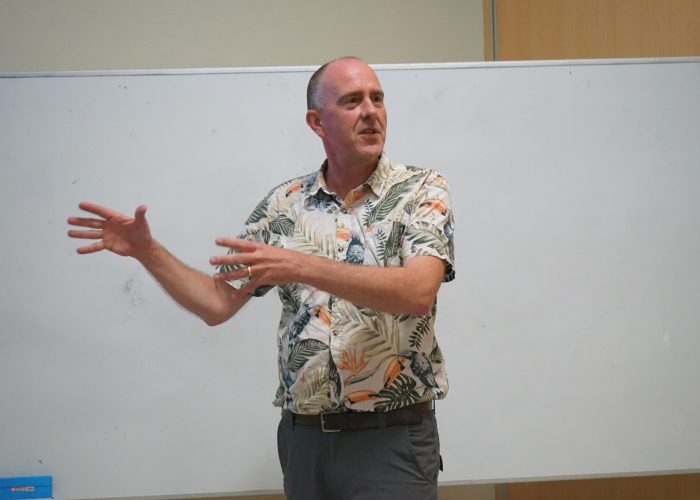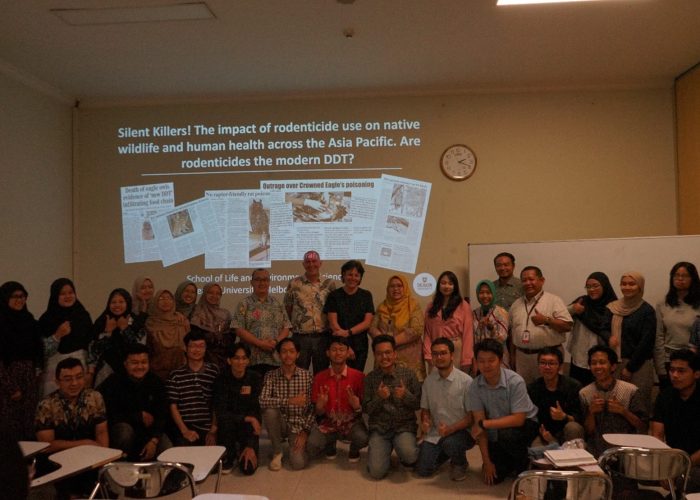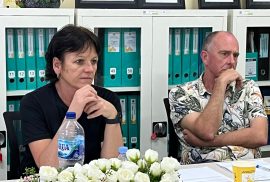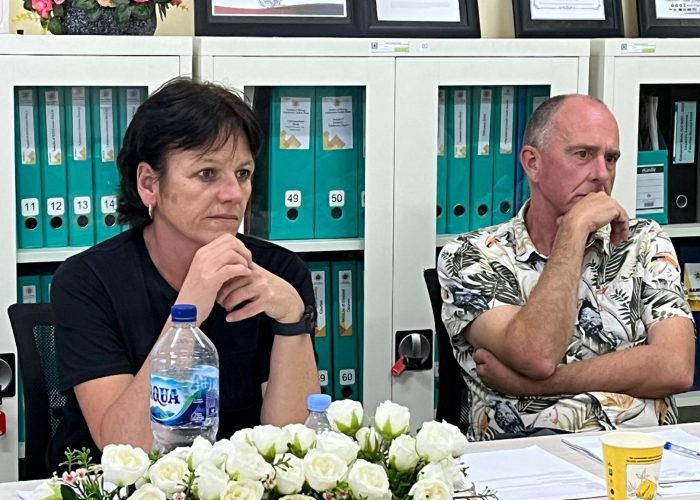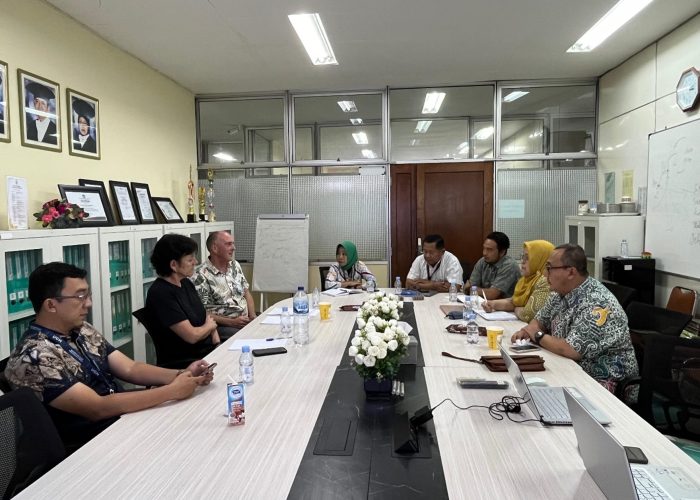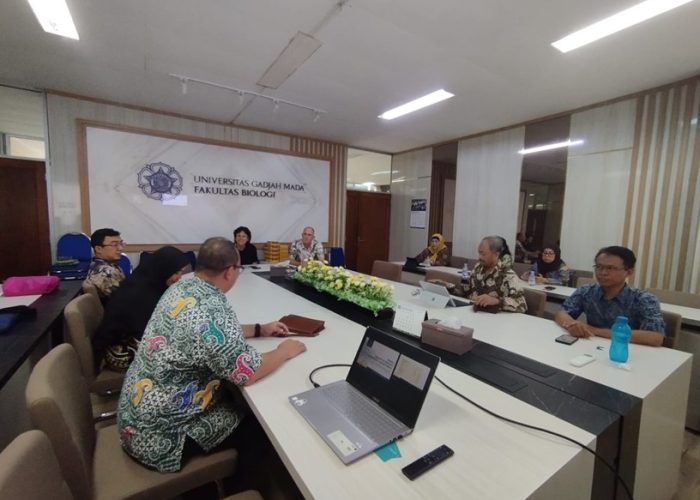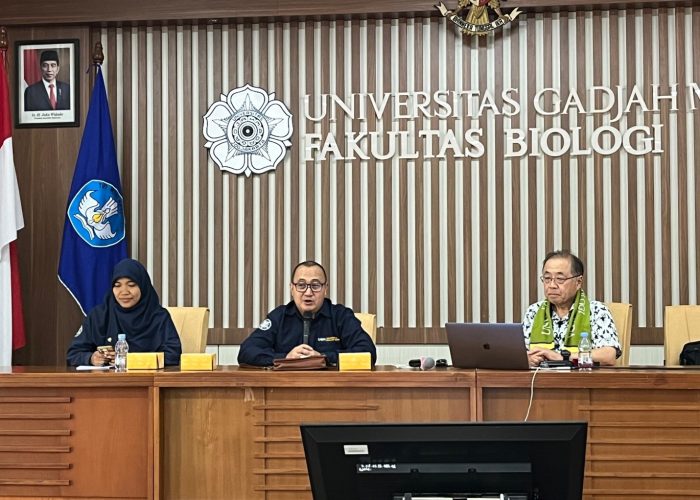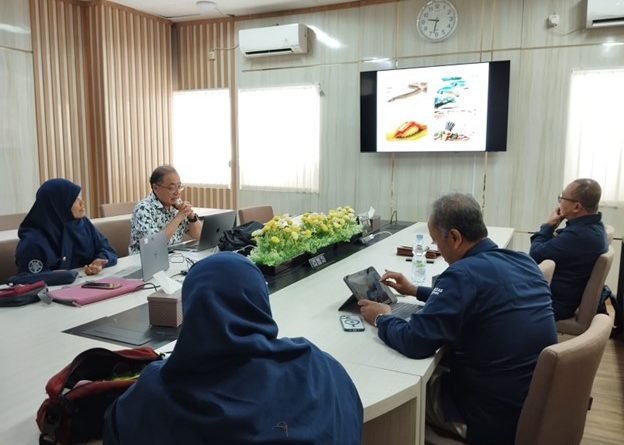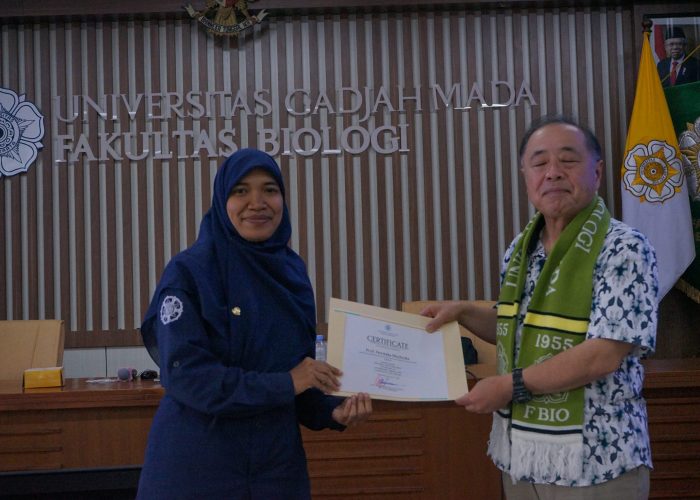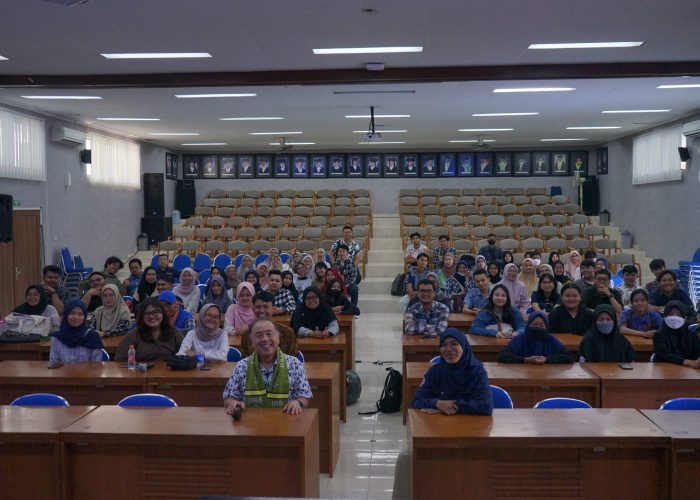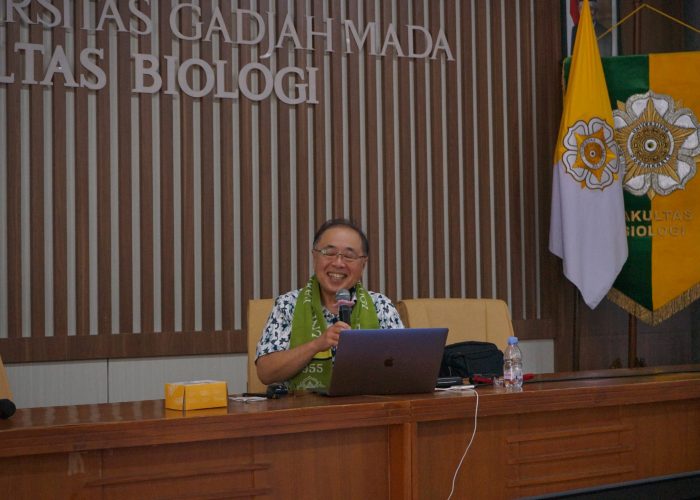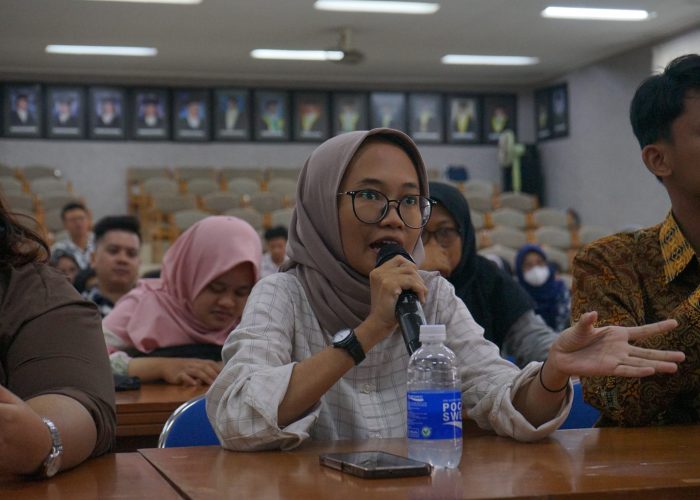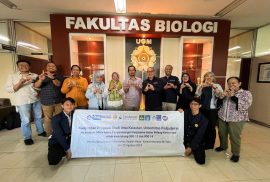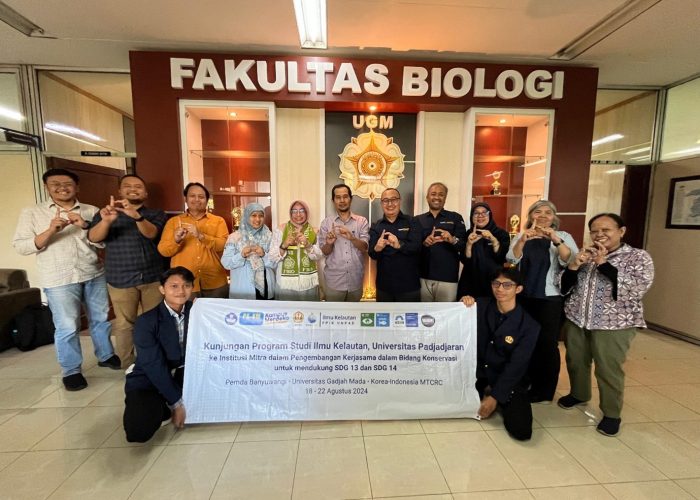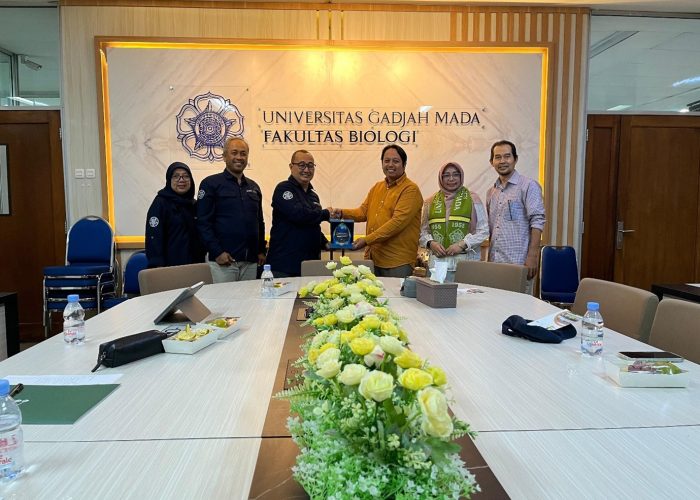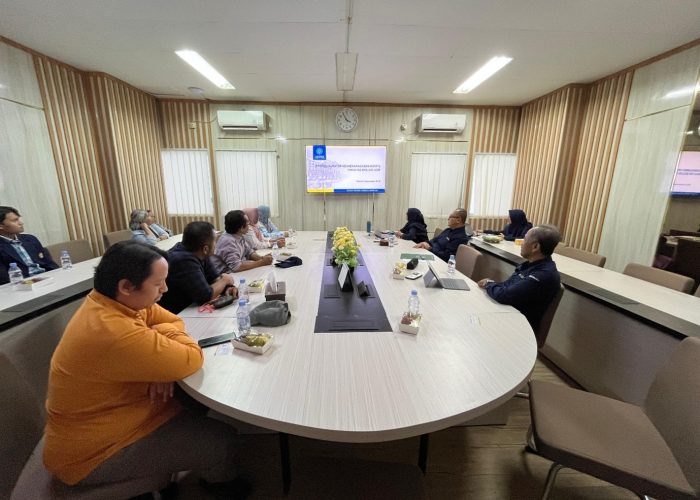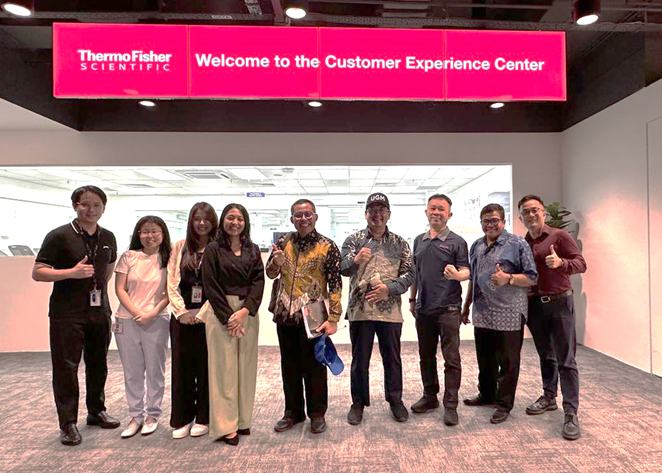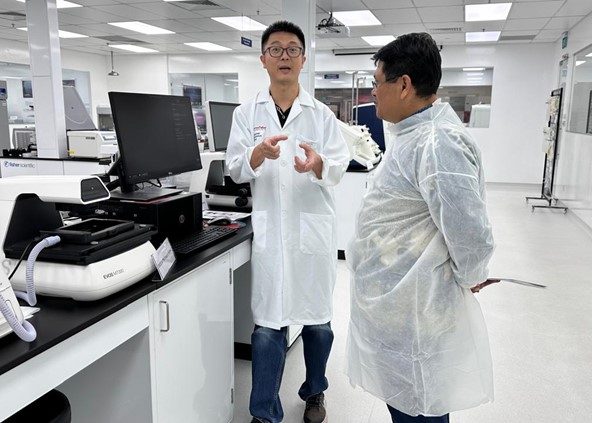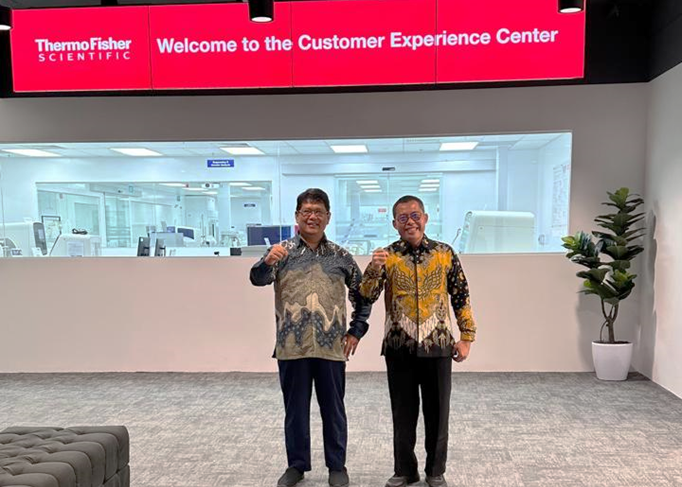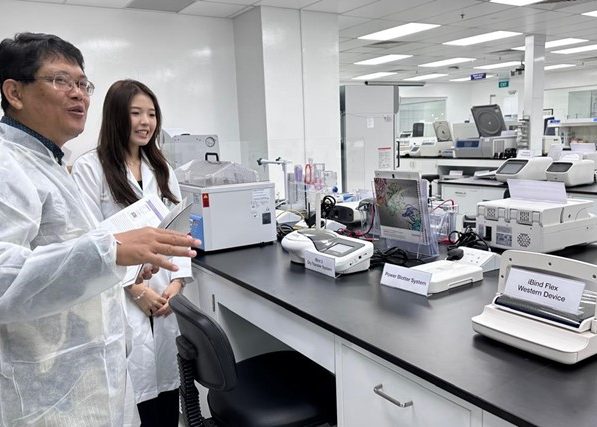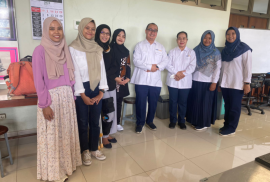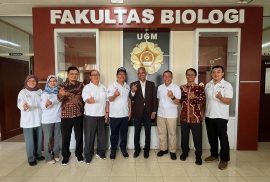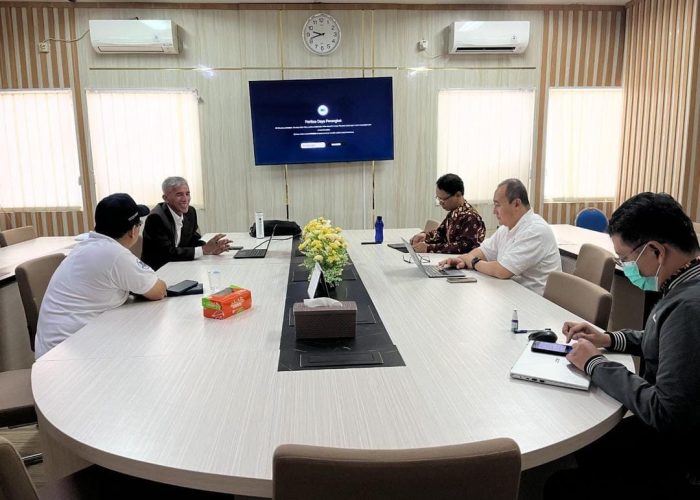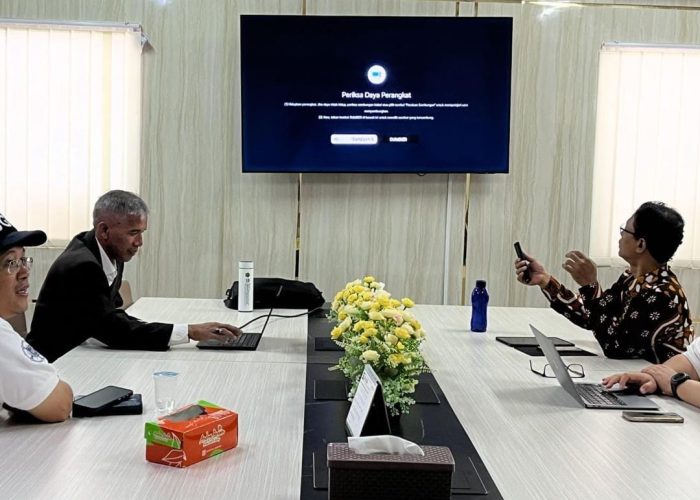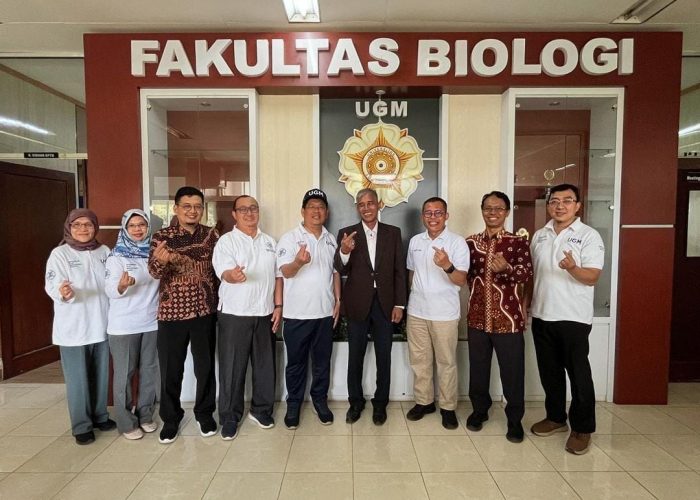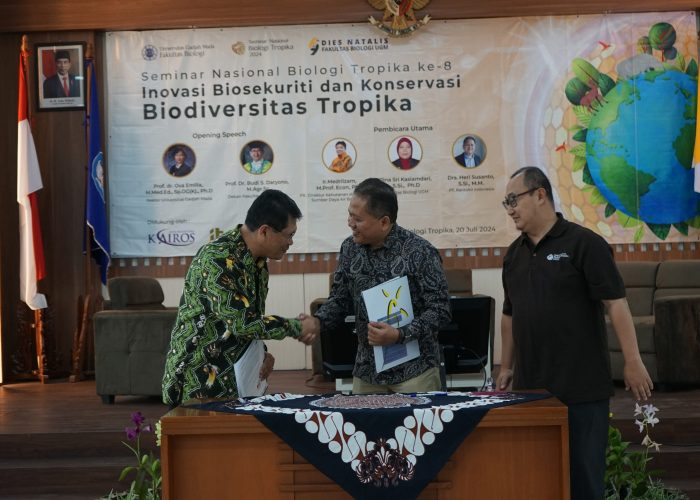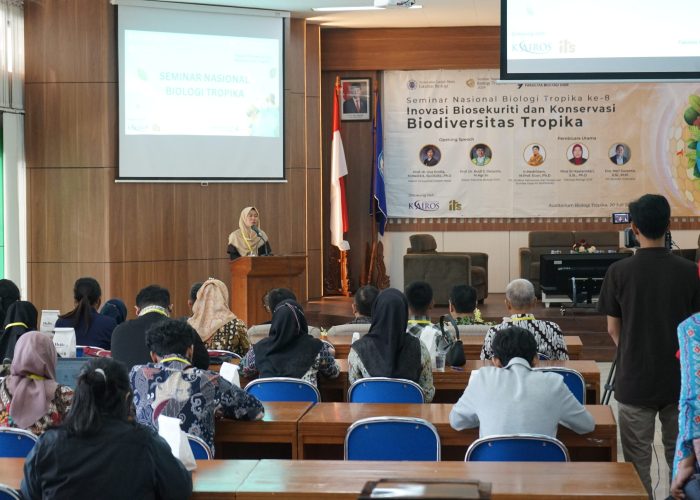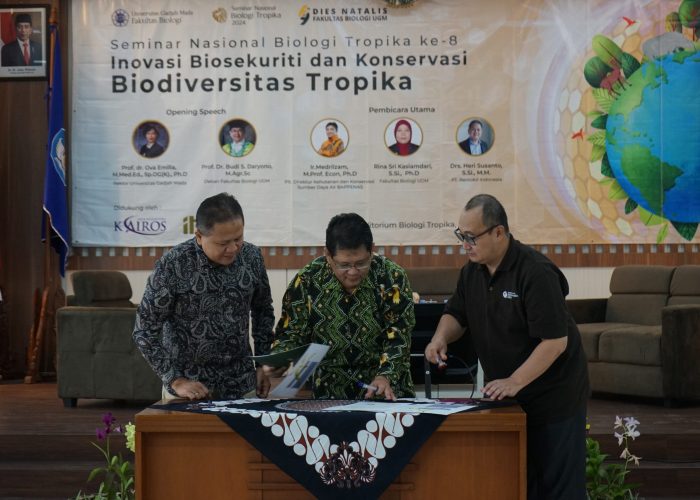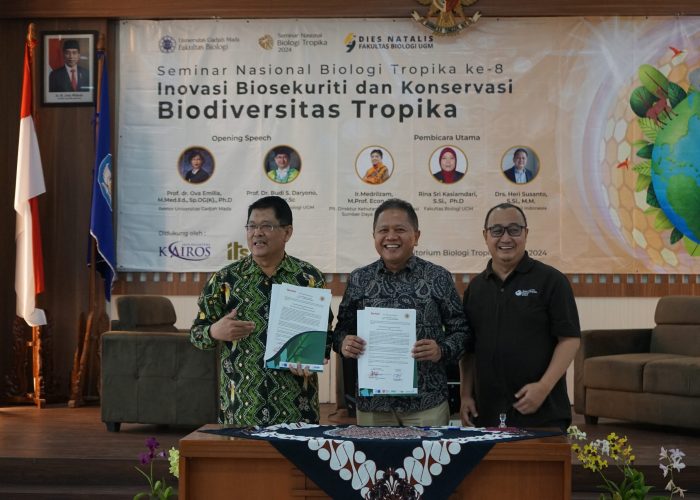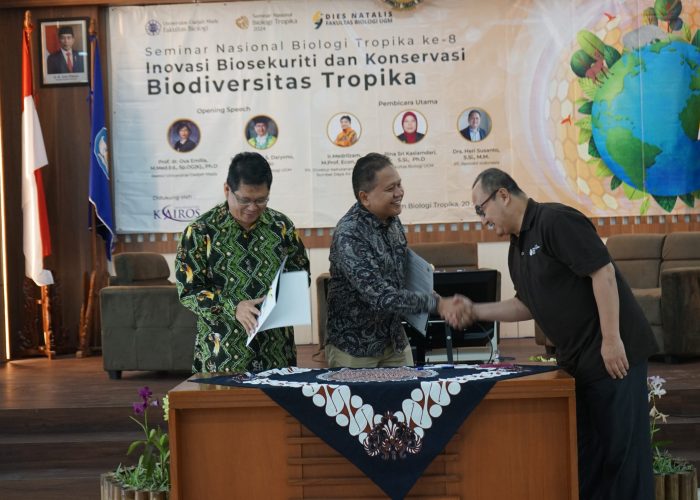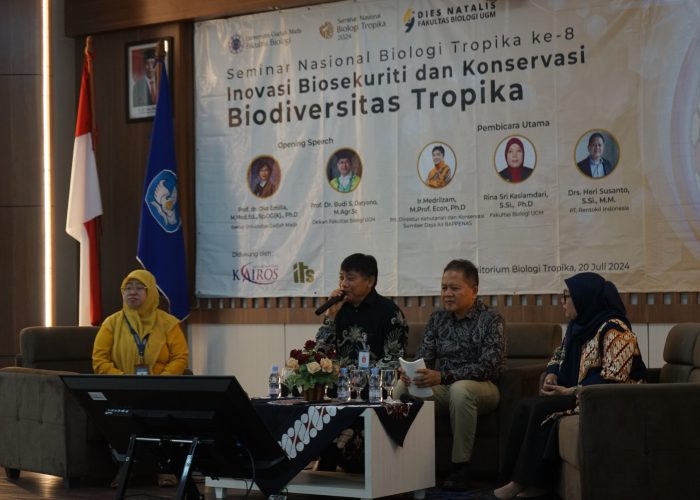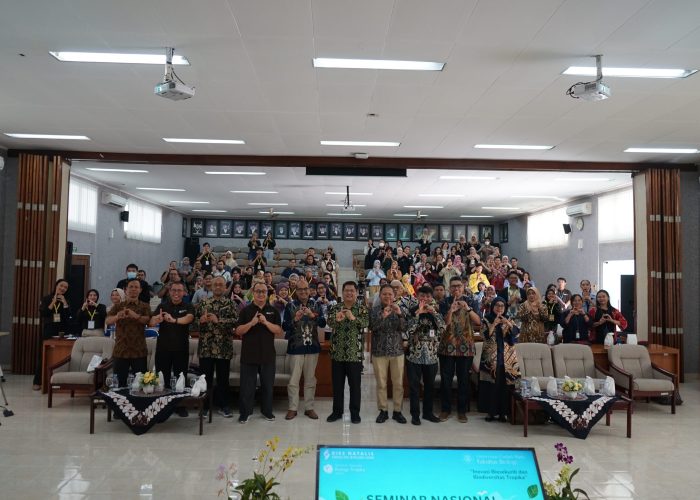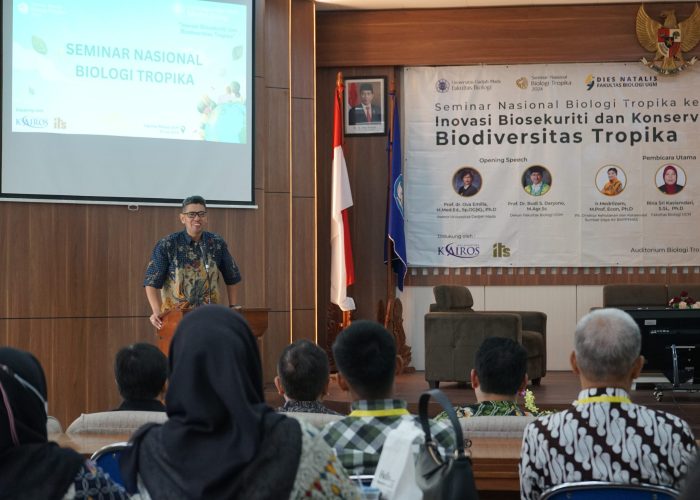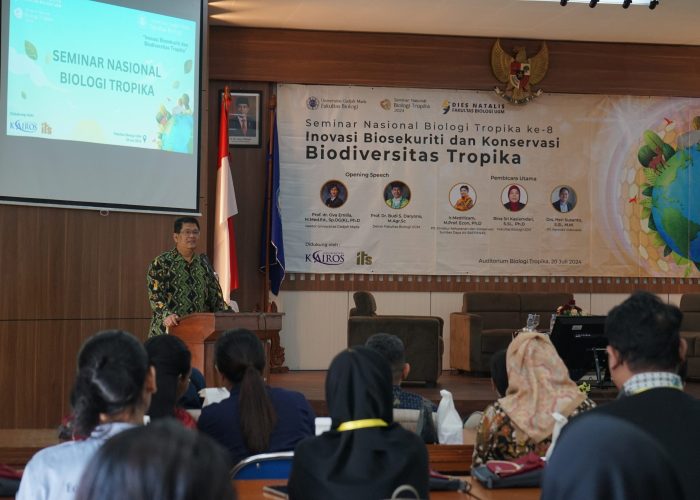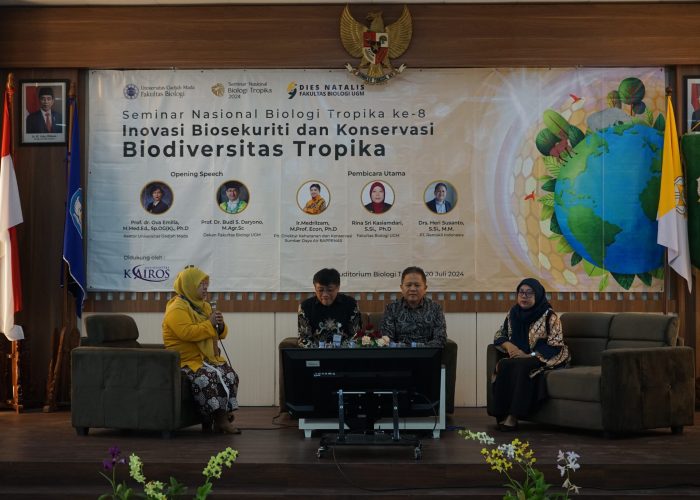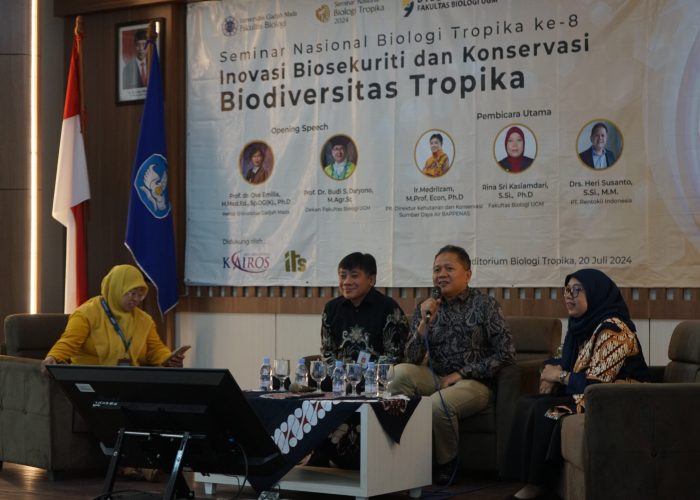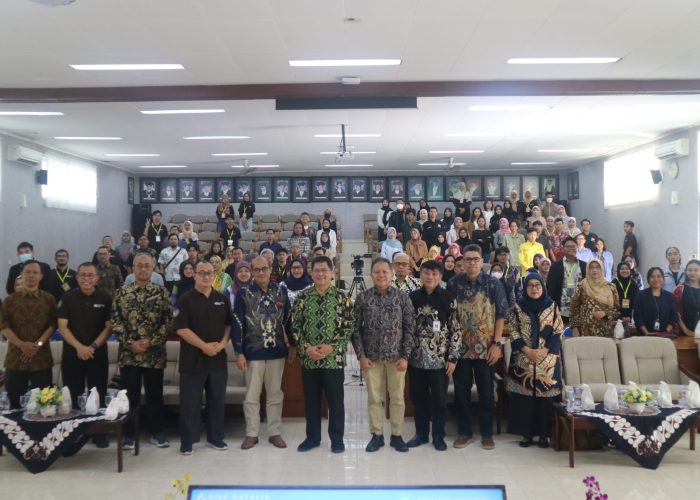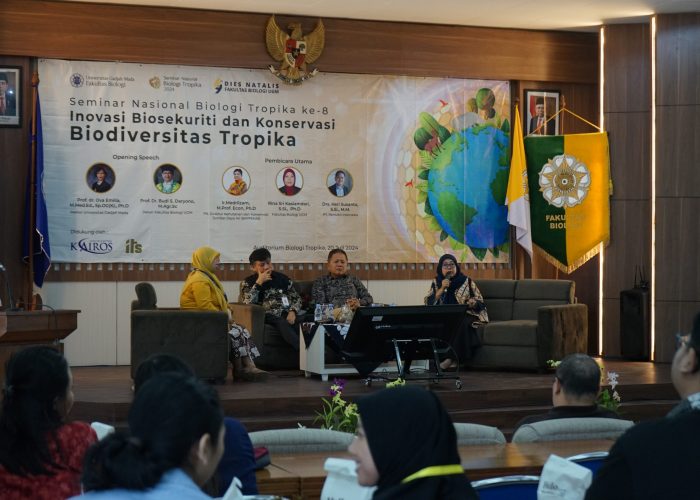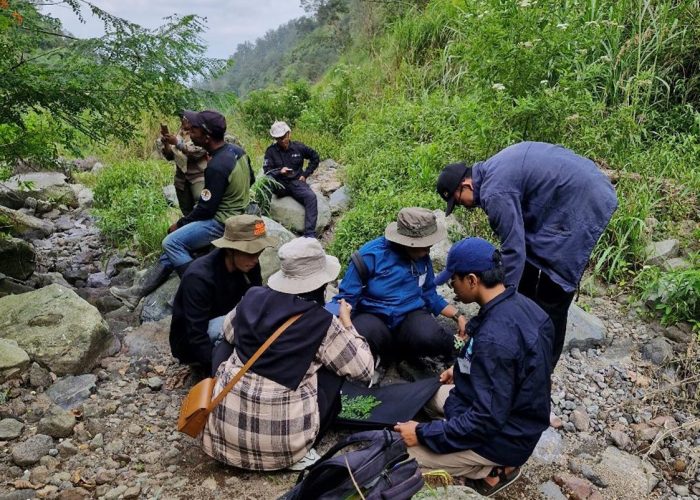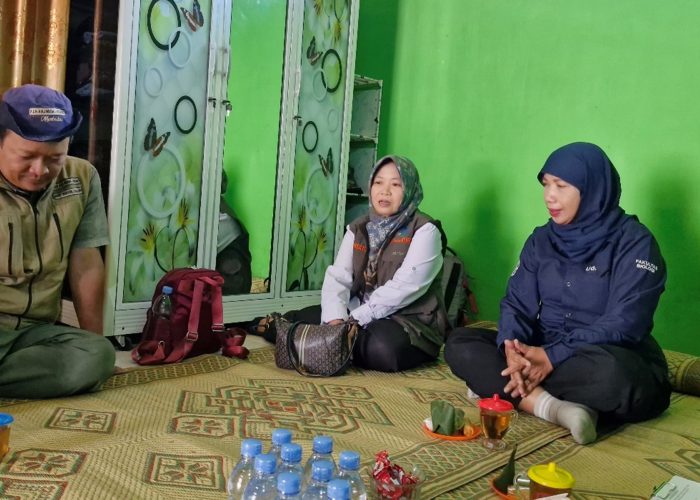Arsip:
Cooperation
Leiden, September 25, 2024 – Faculty of Biology Universitas Gadjah Mada has once again expanded its recognition in the international arena through collaboration with one of the world’s best universities, Leiden University, the Netherlands. Located in the Gorlaeus Building, Faculty of Science, Leiden University, Faculty of Biology UGM officially established a Joint Doctoral Degree Agreement with the Graduate School, Faculty of Science, Leiden University. The official signing was carried out by the Dean of the Faculty of Science, Leiden University, Prof. dr. Jasper Knoester accompanied by Prof. Mirwan Ushada, S.TP., M.App.Life.Sc. as the Director of Research at UGM and Luthfi Nurhidayat, M.Sc. as a Lecturer at the Faculty of Biology UGM and Ph.D. student at the Institute of Biology, Leiden University. The agreement was previously signed by the Dean of the Faculty of Biology UGM, Prof. Dr. Budi Setiadi Daryono, M.Agr.Sc. on the agenda of the 69th Anniversary of the Faculty of Biology, as well as by the Rector of UGM, Prof. dr. Ova Emilia, M.Med.Ed., Sp.OG(K)., Ph.D.
Prof. Jasper expressed his hope that the signing of this MoA will make the cooperation between UGM and Leiden, especially the two Faculties, even closer and there will be immediate follow-up with the presence of Ph.D. students.
Through this opportunity, Prof. Mirwan conveyed that the collaboration between Leiden University and Universitas Gadjah Mada had previously taken place, especially for the INUCoST (Indonesian Netherland University Consortium on Sustainable Future) collaboration which next year will focus on the theme of health, as well as the collaboration to establish the Zebrafish Research Facility. The Research Director UGM hopes that this collaboration can be strengthened by the presence of Ph.D. students who conduct research using the facility to support the development of research in the field of health and testing of Indonesian natural products. The meeting was also attended by Dr. Pieter Schipper as Head of Academic Affairs Science, Prof. dr. Herman Spaink who is also an adjunct professor at the Faculty of Biology UGM, and Prof. Paul Kessler from Hortus Botanicus Leiden University.
Through this collaboration, it is hoped that it can contribute to the development of research with education in Indonesia, in line with support for the sustainable development goals (SDGs), especially support for inclusive education through sustainable partnerships (SDG 4 and SDG 17).
Yogyakarta, 27 August 2024 – Faculty of Biology Universitas, Gadjah Mada, in collaboration with the National Research and Innovation Agency (BRIN), held a Public Lecture with a conservation ecologist from the School of Life and Environmental Sciences, Deakin University, Australia, namely Prof. Raylene Cooke, and Prof. John White. The lecture was held in Classroom 2, Building B, Faculty of Biology UGM, and was attended by undergraduate and doctoral students from the Faculty of Biology UGM.
“This is a good opportunity for collaboration between the Faculty of Biology UGM and Deakin University, Australia,” said Prof. Budi as Dean of the Faculty of Biology UGM in his speech on Tuesday (27/8). Prof. Budi also told the students to take advantage of this opportunity to gain as much knowledge and information as possible.
Tyas Ikhsan Hikmawan, Ph.D. as a lecturer at the Faculty of Biology UGM who acted as moderator on this occasion then introduced the two panelists in a guest lecture. Prof. Raylene Cooke is an ecologist and conservation biologist whose studies focus on predators and their responses to the dynamics of environmental change such as urbanization. Prof. John himself is an ecologist who focuses on species’ responses to disturbances in ecosystems, both natural and human-caused.
The two ecologists from Deakin University Australia presented a presentation entitled “Silent Killers! The impact of rodenticides on native wildlife and human health across the Asia-Pacific. Are rodenticides the modern DDT?”. On this occasion, both of them highlighted the use of pesticides which has increased significantly along with the increase in the world’s human population. This impacts not only the agricultural sector but also species ecosystems such as wildlife and human health.
Quoting the work of Rachel Carson (1962) in her book “Silent Spring”, Prof. John mentioned DDT or dichloro-diphenyl-trichloroethane, a synthetic insecticide which is known as a “wonder chemical” but has major effects on ecology and human health and is currently prohibited for use in most countries in the world. Prof. John highlighted the effects of DDT accumulating up to higher levels of the food chain such as predators showing how DDT does not break down quickly and is concentrated in the fatty tissue of animals. This is considered to be the cause of the decline in the number of predatory birds in the world.
Rodenticide, Prof. John said, it is the next potential silent killer where its use is quite massive, generally in households and the agricultural industry, considering that rats are a pest that threatens food significantly. Unfortunately, rodenticides not only kill mice but also poison the food chain above them, the predators who make mice one of their prey targets. Some of them are the focus of Prof. John and Prof. Raylene is an Eagle to Powerful Owl.
Prof. Raylene in her presentation showed that second-generation anticoagulant rodenticide (SGAR) is often found in various species in the wild. This resulted in the death of many species which showed high SGAR accumulation which poisoned their livers. Through this issue, the two ecologists also invited ARMS or Anticoagulant Rodenticide Monitoring System research collaboration with researchers in the Asia Pacific region. It is hoped that this research will contribute to handling wild animal deaths due to rodenticides and related policy making.
The participants were enthusiastic about attending the lecture and were critical in the subsequent question and answer session. Through this public lecture, it is hoped that it can encourage innovation, especially for the academic community, in contributing to research on sustainable ecosystem preservation (SDG 4 and 15) through collaboration between the UGM Faculty of Biology and Deakin University, especially the School of Life and Environmental Sciences (SDG 17).
Yogyakarta, 27 August 2024 – The Faculty of Biology, Universitas Gadjah Mada received a visit from a conservation ecologist from the School of Life and Environmental Sciences, Deakin University, Australia, namely Prof. Raylene Cooke, and Prof. John White. Also present were colleagues from the National Research and Innovation Agency (BRIN), Dr. Ristiyanto, Dr. Arlyna Budi Pustika, and Dr. Farida Handayani. The visit was warmly welcomed by the Faculty of Biology, attended by Dr. Eko Agus Suyono, M.App.Sc. as Vice Dean for Research, Community Service, Collaboration and Alumni Affairs, Dr. Bambang Retnoaji, M.Sc. as Vice Dean for Academic and Student Affairs, Dr. Slamet Widiyanto, M.Sc. as Vice Dean for Finance, Assets and Human Resources Affairs, Dr.rer.nat Andhika Puspito Nugroho as Head of the Masters Study Program, Rina Sri Kasiamdari, Ph.D. as Head of the Biodiversity Curator Professional Study Program, Nur Indah Sepriani, Ph.D., and Tyas Iksan Hikawan, Ph.D. as Chair and Secretary of the Office of International Affairs, Faculty of Biology, as well as several lecturers at the Faculty of Biology who have studied in Australia; Dr. Maryani, and Dra. Tuty Arisuryanti, M.Sc., Ph.D.
Dr. Eko warmly welcomed the meeting. He said that the visit could be a great moment to initiate academic and research collaboration between the two institutions. The Deputy Dean for Research, Community Service, Cooperation and Alumni then explained the profile of the Faculty of Biology UGM, introducing each study program and collaborations that could be initiated together.
Prof. Raylene and Prof. John appreciated the meeting agenda. The two ecologists from Deakin University are enthusiastic about the Biodiversity Curator Professional Program at the Faculty of Biology, as well as the initiation of double degrees at bachelor, master and doctoral levels which can be collaborated with the School of Life and Environmental Sciences, Deakin University, especially as UGM itself has established memorandum of understanding with Deakin since 2020.
The discussion also discussed plans for research collaboration between Deakin University, Faculty of Biology, and the National Research and Innovation Agency (BRIN) which focuses on mapping rodenticides in the Asia Pacific, one of which is Indonesia. This was also conveyed by Prof. John and Prof. Raylene gave a public lecture on Tuesday (27/8) afternoon which focused on ARMS or Anticoagulant Rodenticide Monitoring System research with researchers in the Asia Pacific region. The collaboration scheme is planned to involve researchers and students from Deakin University, Faculty of Biology UGM, and BRIN through KONEKSI or Knowledge Partnership Platform Australia-Indonesia, a collaborative research funding program between Indonesia and the Australian Government. Apart from that, collaboration through double degrees with LPDP support was also initiated.
It is hoped that this meeting will be the initiation of collaboration between the School of Life and Environmental Sciences, Deakin University and the Faculty of Biology UGM, National Research and Innovation Agency (BRIN) as well as through academic collaboration and sustainable research (SDG 4 and 17), especially in ecological and conservation research for ecosystem sustainability (SDG 15).
Yogyakarta, 21 August 2024 – The Faculty of Biology, Universitas Gadjah Mada received a visit from Professor from Kyushu University Japan, Prof. Noritaka Mochioka. The visit was received in the KPTU Meeting Room, Faculty of Biology UGM by Dr. Eko Agus Suyono, M.App.Sc. as Vice Dean for Research, Community Service, Collaboration and Alumni Affairs, Dr. Bambang Retnoaji, M.Sc. as Vice Dean for Academic and Student Affairs, as well as Lecturers from the Animal Development Structure Laboratory, Faculty of Biology, Nur Indah Septriani, M.Sc., Ph.D., and Zuliyati Rohmah, Ph.D.
This visit is the second time Prof. Noritaka Mochioka visited the Faculty of Biology UGM after 2017. He was also present as a guest lecturer on several previous occasions. During this visit, Prof. Noritaka Mochioka expressed his enthusiasm for developing research related to eel with Nur Indah Septriani, Ph.D. who is also a graduate of Kyushu University, Japan.
Dr. Eko welcomed Prof. Noritaka Mochioka. During the visit, various cooperation initiatives were presented that could be collaborated with Kyushu University, including student exchanges up to double degrees. Previously, the Faculty of Biology UGM also established good cooperation with a student exchange scheme through the Sakura Science Program with Yamagata University, Japan.
Prof. Noritaka Mochioka also had the opportunity to give a public lecture, taking place in the Tropical Biology Auditorium, UGM Faculty of Biology, moderated by Nur Indah Septriani, Ph.D. He delivered a public lecture entitled “Life History and Conservation of Freshwater Eel”. Dr. Eko as Vice Dean for Research, Community Service, Collaboration and Alumni Affairs, was also present to give an introductory speech at the public lecture.
Prof. Noritaka Mochioka started the lecture by explaining how marine products have become an important commodity for Japanese community. Both marine products that are commonly consumed and those that are less common, such as pufferfish, are processed to make them suitable for consumption. He focuses his research on eel or eel or what is commonly known as unagi. Prof. Noritaka Mochioka highlighted the diversity, distribution of eels in Japan and the world and their high nutritional quality, but the price is not yet affordable. He focuses on developing eels that are highly nutritious but can be reached by the wider community.
The public lecture was followed by a question-and-answer session. Participants were very enthusiastic about attending the lecture and were interested in learning about eels. It is hoped that this public lecture can become a forum for inspiration for collaboration as well as strengthening collaborative relations, especially between the Faculty of Biology UGM and Kyushu University Japan in the future, in line with the commitment to the Sustainable Development Goals for increasing inclusive education and expanding cooperation (SDG 4 and 17) at the same time. contribution to the preservation of marine ecosystems (SDG 14) and the development of functional food that is affordable for communities (SDG 12).
Yogyakarta, August 21, 2024 – The Faculty of Biology at Universitas Gadjah Mada (UGM) welcomed a visit from the Faculty of Fisheries and Marine Sciences (FPIK) at Universitas Padjajaran (Unpad) for a benchmarking activity focused on the Biodiversity Curator Professional Study Program (PKKH). The visit took place on Wednesday, August 21, 2024, from 3:00 – 4:15 PM, in the KPTU Meeting Room at the Faculty of Biology, UGM.
The delegation from FPIK Unpad, consisting of 6 lecturers and 4 students, was warmly received by the leadership of UGM’s Faculty of Biology. The FPIK Unpad representatives included Dra. Sri Astuty, M.Sc.; Dr. Yeni Mulyani, S.Si., M.Si.; Dr. H. Sunarto, S.Pi., M.Si.; Buntora Pasaribu, S.Pi., M.Sc., Ph.D.; Dr. Eri Bachtiar, S.Si., M.Si.; and Dr. Yuniarti, MS, S.Pi., M.Si.
On behalf of UGM’s Faculty of Biology, the event was attended by Dr. Bambang Retnoaji, M.Sc., Vice Dean for Academic and Student Affairs; Dr. Eko Agus Suyono, M.App.Sc., Vice Dean for Research, Community Service, Cooperation, and Alumni; as well as Rina Sri Kasiamdari, S.Si., Ph.D., Head of the Biodiversity Curator Professional Program. Additionally, two staff members from UGM’s P2MKSA Unit were also present.
The visit aimed to study and gain a deeper understanding of the Biodiversity Curator Professional Program, which has recently been established at UGM’s Faculty of Biology. During the meeting, both parties engaged in discussions about the curriculum, program management, and potential collaboration opportunities in academic and research fields (SDGs 4).
In his opening remarks, Dr. Eko stated, “We warmly welcome our colleagues from FPIK Unpad and hope that this benchmarking activity will serve as a starting point for closer collaboration in the future, particularly in the development of programs focused on biodiversity conservation and management (SDGs 14 and SDGs 15).”
On the other hand, Dr. Yuniarti, Head of Bachelor Program Study the FPIK Unpad delegation, expressed her gratitude for the warm reception from UGM’s Faculty of Biology. She also expressed her hope that the results of this benchmarking activity could be applied in the development of programs at FPIK Unpad.
The visit concluded with the exchange of souvenirs between the two institutions and a group photo session as a memento. This visit is expected to strengthen the synergy between the two institutions in advancing education and research in the field of biodiversity in Indonesia (SDGs 16 and SDGs 17).
Singapore, August 7, 2024 – In an effort to enhance the quality of education and research, the Faculty of Biology UGM, represented by the Dean of the Faculty of Biology UGM, Prof. Dr. Budi S. Daryono, M.Agr.Sc., and the Vice Dean for Finance, Assets, and Human Resources, Dr. Slamet Widiyanto, S.Si., M.Sc., conducted a visit to Singapore. The visit aimed to establish collaboration and demonstrate laboratory equipment at the Thermo Fisher Scientific Customer Experience Center (CEC) in Singapore. The event, which took place from August 5 to 6, 2024, was organized by PT Nutrilab Pratama in collaboration with Thermo Fisher Singapore.
The event began with a welcome and safety briefing by Yu Xuan TEH and Anthony LIM, Ph.D., who serve as Product Manager for Southeast Asia and Technical Sales Leader SEATW, Bioscience Division, Life Sciences, and Laboratory Products Group. This was followed by an in-depth presentation on the MSC Workflow by Zou Yu, who also serves as Product Manager for Southeast Asia, Bioscience Division, Life Sciences, and Laboratory Products Group. The first day’s agenda provided valuable insights into the latest laboratory technologies that can enhance the effectiveness and efficiency of scientific research.
The second day commenced with a presentation on the Cell Counting Workflow (Countess 3 FL) by Yu Xuan TEH, followed by a presentation on the Cell Imaging Workflow (EVOS and CX7) by Xie Wei. The session continued with a presentation on bigfoot/attune/ALF delivered by Nicholas. The event concluded with a practical demonstration of the iWestern Workflow and a presentation on the Luminex multiplex assay by Tian Sheng at the CEC laboratory, offering hands-on experience in utilizing the latest laboratory technologies.
This visit is expected to be a positive first step in strengthening the collaboration between the Faculty of Biology UGM, PT Nutrilab Pratama, and Thermo Fisher Singapore. This partnership demonstrates the commitment of the Faculty of Biology UGM to expanding connections and enhancing the quality of education through collaboration with various partners. This initiative aligns with the Faculty of Biology UGM’s efforts to support the achievement of the Sustainable Development Goals (SDGs), particularly SDG 4 (Quality Education) and SDG 17 (Partnerships for the Goals).
Additionally, this event supports SDG 9 (Industry, Innovation, and Infrastructure), which emphasizes the importance of research with cutting-edge technology and innovation. The Faculty of Biology UGM hopes to adopt advanced laboratory technologies to improve research and teaching capacity, as well as strengthen UGM’s position as a leading educational institution in the field of biology. This visit underscores UGM’s commitment to advancing science and technology for the betterment of education and research in Indonesia.
Plant embryology is a crucial parameter in botanical studies, including systematics, evolution, and biotechnology related to plant somatic embryogenesis. The natural or in vitro formation and development of embryos can analyzed through anatomical approaches. Analyzing plant anatomy requires special treatment and preparation of samples, necessitating a platform for discussion and training to update methods and share information.
The Plant Structure and Development Laboratory (SPT) at the Faculty of Biology, UGM, as part of its community service and to open collaborative opportunities, welcomed four researchers from PT. BISI International, Kediri, for a training and networking visit. These researchers, Esti Sri Lestari, S.Si., M.Sc., Ida Wilujeng Abidah Ubudiyah, S.Si., Lina Wahyu Hapsari, S.P., and Rahmawati Amaliah, S.Si., come from the Department of Biotechnology. The training took place over eight days, from August 22 to 31, 2024.
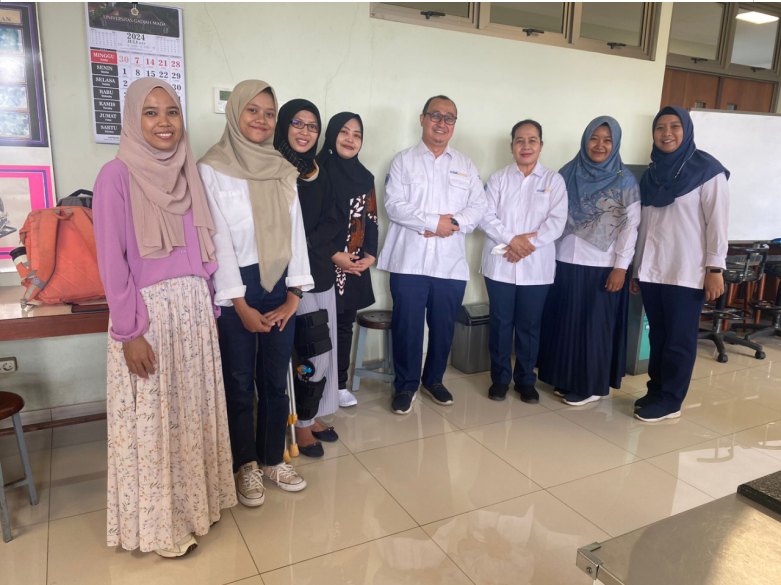
Dr. Maryani, M.Sc., head of the SPT Laboratory, welcomed the participants, and Dr. Eko Agus Suyono, M.App.Sc., Vice Dean for Research, Community Service, Collaboration, and Alumni Affairs, officially opened the event on Monday, August 22, 2024, at the SPT Laboratory, Building B. In his opening remarks, the vice dean emphasized the importance of research collaboration in the current era. The training included lectures/discussions on plant microtechnique and embryology, hands-on practice preparing embryology slides, analysis, and independent lab work. Lectures were given by Utaminingsih, S.Si., M.Sc., from the Plant Structure and Development Laboratory, with independent work supported for three days by lab assistant Ms. Prapti.
Dr. Slamet Widiyanto, M.Sc., officially closed the event on Wednesday, August 31, 2024. In his closing remarks, he reiterated that the goal of this training extends beyond the eight days and should serve as the beginning of future research collaborations. He encouraged participants to share the benefits of the training widely and provide feedback to the Faculty of Biology, especially the SPT Laboratory, for any improvements.
This training supports the Sustainable Development Goals (SDGs), particularly in fostering partnerships and cooperation (SDG 17), and aims to benefit the general welfare of Indonesian society (SDG 3). Additionally, it aligns with the government’s program to enhance the quality of education (SDG 4).
Hopefully, this training became a kickstart of collaboration and research partnership between the Faculty of Biology UGM and PT BISI International. The knowledge and technical skills gained during the training would be valuable for participants and related institutions.
Yogyakarta, 26 July 2024 – The Faculty of Biology, Universitas Gadjah Mada received a visit from Dr. Agus Salim, S.Ag., M.Sc. from the State Islamic University (UIN) Jakarta regarding consultations and hearings at the Center for Research and Development of Bio Maritime Border Territory and 3T Region of RI (CRDB2T3). Taking place in the KPTU Meeting Room, Faculty of Biology UGM, the visit was received by Prof. Dr. Budi Setiadi Daryono, M.Agr.Sc. as Dean of the Faculty of Biology, Dr. Eko Agus Suyono, M.App.Sc. as Vice Dean for Research, Community Service, Collaboration and Alumni Affairs, Abdul Razaq Chasani, Ph.D. as Head of the Department of Tropical Biology, Sukirno, M.Sc., Ph.D. as Head of the Undergraduate Study Program, Emi Dwi Suryanti, S.Si., M.Sc. as Coordinator of Academic and Student Affairs, as well as lecturers at the Faculty of Biology including Tyas Ikhsan Hikmawan, M.S., Ph.D. and Dra. Mulyati, M.Sc.
Dr. Agus said the visit was for consultations and hearings on the establishment of the Center for Research and Development of Bio Maritime Border Territory and 3T Region of RI (CRDB2T3). The study center which focuses on maritime management research will involve the collaboration of researchers from various higher education institutions, research bodies, Non-Governmental Organizations (NGOs), and so on, including lecturers at the Faculty of Biology UGM, Abdul Razaq Chasani, Ph.D. which has a research focus related to macroalgae.
Dr. Agus said that the establishment of the research center had taken place through hearings and sending collaboration proposals to various institutions and institutions. He revealed that his current focus is related to the supporting facilities that will stand as the main office of the research center. Dr. Agus also added plans to establish this facility in the Laboi area, Bintan Island, as well as collaboration with Raja Ali Haji Maritime University, Riau Islands.
Prof. Budi warmly welcomed the plan to establish the research center. The Dean of the UGM Faculty of Biology also conveyed the urgency of studies related to maritime and marine affairs, especially since the Indonesian Biology Consortium (KOBI) itself has so far focused on collecting data on terrestrial species.
Prof. Budi together with colleagues from the Faculty of Biology UGM supported the inauguration of the maritime study center institution first, including improving academic articulation, preparing AD ART and registering legal status, especially as the research center is planned to be independent and not managed under an institution directly. It is hoped that this will support the acceleration of the establishment of research centers.
CRDB2T3 will focus on the maritime domain which includes humans, ecosystems and marine resources in Indonesia. It is possible for the reseach center to include educational support in Indonesia, especially its focus on developing underdeveloped, outermost and frontier areas (3T) in addition to support for other higher education tri dharma, namely research and community service. It is hoped that this study center will catalyze marine research development programs in Indonesia while supporting sustainable development.
Yogyakarta, 20 July 2024 — The Faculty of Biology, Universitas Gadjah Mada (UGM) held the 8th National Seminar on Tropical Biology (SNBT) on 20 July 2024. This year, the seminar was held in a hybrid with “Biosecurity Innovation and Tropical Biodiversity Conservation” theme. This event, which was held at the Auditorium of the Faculty of Biology, aims to provide a platform for academics, researchers, practitioners and students to discuss current issues and innovative solutions in biosecurity and biodiversity conservation in tropical regions. This seminar activity began with a report from Dr. Siti Nurbaiti as chair of the 2024 SNBT Committee, followed by remarks by Prof. Dr. Mirwan Ushada, Director of Research representing the Rector of UGM and opened by Prof. Dr. Budi Setiadi Daryono. M.Agr.Sc., as Dean of the Faculty of Biology UGM. This seminar was attended by around 100 participants from 21 institutions in Indonesia. On this occasion, an MoU was also signed between the Faculty of Biology UGM and PT. Rentokil Indonesia. It is hoped that this collaboration can be a form of synergy between academics and industry, especially regarding the issue of biosecurity and Indonesian biodiversity.
As the first keynote speaker, Ir. Medrilzam from BAPPENAS raised the topic “The Role of Government Policy for Biodiversity Conservation”. In his presentation, Ir. Medrilzam delivered the Indonesian Biodiversity Strategy and Action Plan (IBSAP), the Indonesian government’s strategy for preserving biodiversity, and how these policies are expected to shape people’s behavior towards a positive nature.
As the second speaker, Drs. Heri Susanto from PT. Rentokil Indonesia discussed “The Role of Biological Science and Digital Technology in Sustainable and Environmentally Friendly Pest Control”. In this session, Drs. Heri Susanto conveyed the exploration of the integration of biological science with digital technology to develop pest control methods that are more effective and environmentally friendly.
The third speaker, Mrs. Rina Sri Kasiamdari, Ph.D. delivered material on “The Role of Fungi in Biosecurity and Biodiversity Conservation”. The focus of this discussion is the role of fungi as biosecurity agents in maintaining biodiversity, as well as how fungi can be used in conservation efforts.
The plenary session of the three speakers was enlivened with questions from seminar participants ranging from biodiversity protection related to infrastructure developments to opportunities for food source options with high nutrition from the variety of diversity that Indonesia has to meet food needs and in terms of handling. pest. The seminar activities were continued with parallel sessions filled with presentations by the participant speakers on various research titles, which were carried out offline and online.
The 8th SNBT in 2024 was closed by Dr. Eko Agus Suyono, M.App.Sc., as Vice Dean for Research, Community Service, Collaboration and Alumni Affairs. In his closing remarks, he said that SNBT is a forum for increasing understanding of biosecurity and tropical biodiversity conservation through in-depth discussions with experts in the field, thereby inspiring innovation and collaboration between academics, researchers and practitioners in efforts to protect biodiversity, encourage policy development and new strategies that can be implemented to preserve the environment and support the sustainability of tropical ecosystems. It is also hoped that this national seminar will create synergistic cooperation between the participants who attend, which is expected to be a positive thing that can build and provide more impact regarding issues related to the topic of biosecurity and tropical biodiversity conservation in the future. Furthermore, this seminar plays a role in implementing several points of Sustainable Development Goals (SDG’s): 2. Zero hunger, 3. Good health and well-being, 4. Quality education, 6. Access to clean water and sanitation, 7. Affordable and clean and energy, 9. Industry, innovation and infrastructure, 11. Sustainable cities and communities, 13. Climate change action, 14. Maintaining marine ecosystems, 15. Maintaining land ecosystems and 17. Partnerships for the goals.
On July 16 and 17, 2024, a research team from the Faculty of Biology at Gadjah Mada University (UGM), led by Prof. Dr. Ratna Susandarini, M.Sc., conducted an ethnobotanical survey as part of a collaborative effort on the Bioprospecting of Medicinal Plants with the Mount Merbabu National Park Authority. The survey took place in the Ampel and Kopeng Resorts within the Mount Merbabu National Park.
The primary objective of this collaboration is to gather data on the use of medicinal plants by the local communities living around the national park. This initiative is crucial for the conservation of biodiversity and the sustainable use of natural resources. The research team collected information through interviews with local residents, who shared their traditional knowledge on the medicinal properties of various plants.
Following the data collection from the community, the team conducted a field survey to collect samples of the medicinal plants mentioned. This fieldwork is essential for the bioprospecting process, which aims to identify plants with potential biomedical applications. The collected samples will be analyzed in the laboratory to determine their chemical composition and potential health benefits.
Prof. Dr. Ratna Susandarini emphasized the importance of this research in contributing to the Sustainable Development Goals (SDGs), particularly in the areas of health, biodiversity conservation, and sustainable use of ecosystems. “Our work here not only aims to discover new medicinal compounds but also to promote the conservation of plant biodiversity in Mount Merbabu National Park,” she stated.
The collaboration between UGM and the Mount Merbabu National Park Authority is a significant step towards integrating traditional knowledge with modern scientific research. This approach not only respects and preserves the cultural heritage of the local communities but also enhances the scientific understanding of medicinal plants.
The Mount Merbabu National Park, known for its rich biodiversity, provides an ideal setting for this type of research. The park is home to numerous plant species, many of which have been used traditionally for medicinal purposes. By documenting and studying these plants, the research team hopes to contribute to the global knowledge of medicinal biodiversity.
The local communities play a vital role in this research. Their traditional knowledge and practices are invaluable resources for identifying plants with medicinal properties. The involvement of the community also ensures that the benefits of the research are shared with those who have preserved this knowledge for generations.
The field survey in the Ampel and Kopeng Resorts was conducted with the support of the Mount Merbabu National Park Authority, which provided logistical assistance and access to the research sites. This collaboration highlights the importance of partnerships in achieving conservation and sustainable development goals.
The findings from this research will be published in scientific journals and shared with the local communities and relevant stakeholders. This dissemination of knowledge is crucial for promoting the conservation of medicinal plants and their sustainable use.
In conclusion, the bioprospecting survey of medicinal plants in Mount Merbabu National Park is a significant initiative that combines traditional knowledge with modern science. It aims to contribute to the conservation of biodiversity, the discovery of new biomedical compounds, and the sustainable use of natural resources, aligning with the broader goals of the SDGs.

